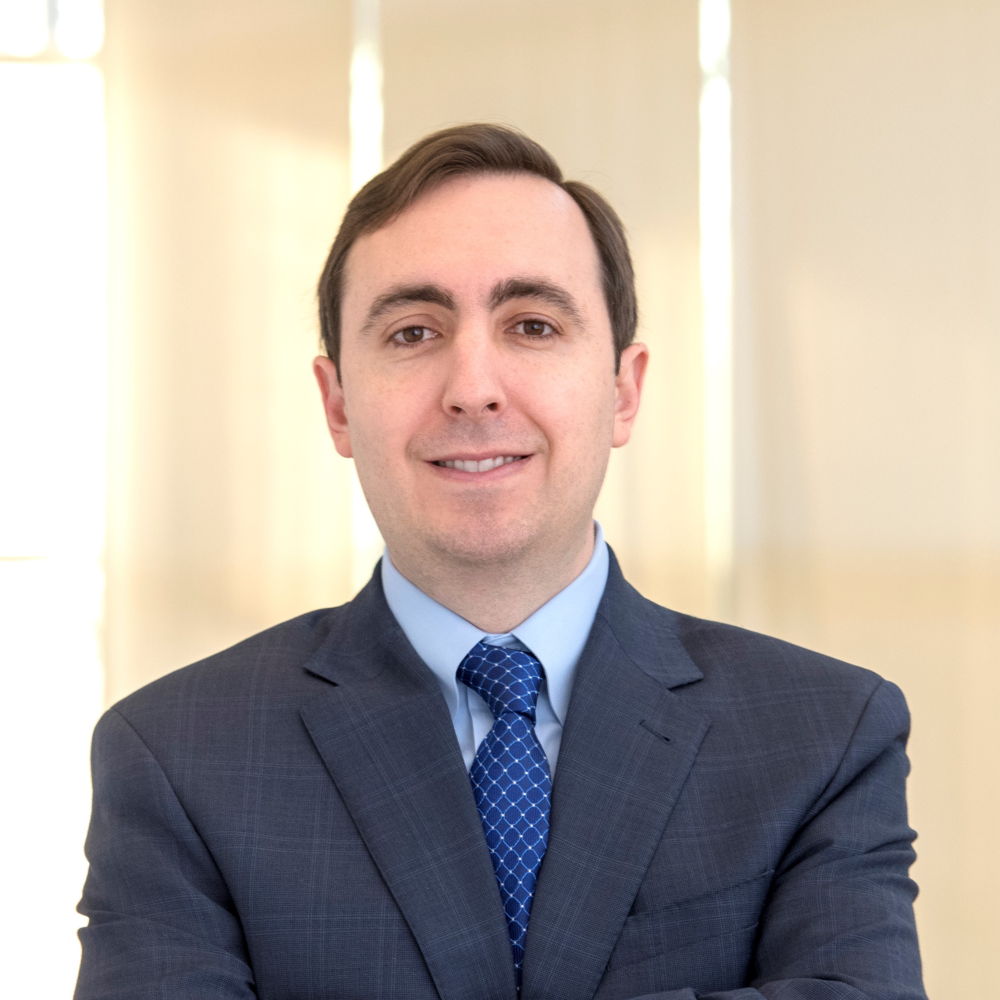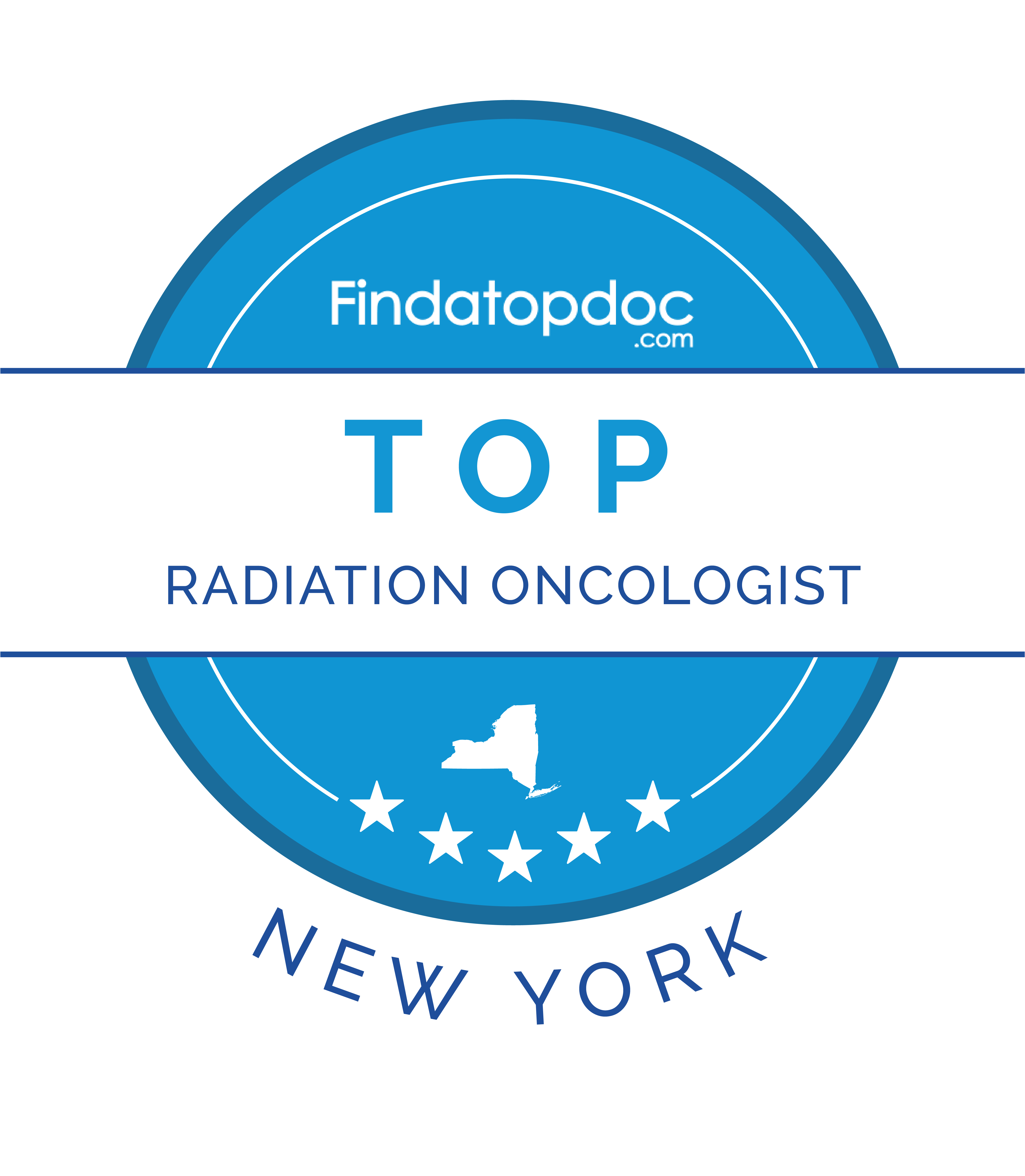

Dr. Charles B. Simone II, MD, FACRO
Radiation Oncologist | Radiation Oncology
225 E 126th St New York NY, 10035
About
Charles B. Simone, II, MD, FACRO is a Research Professor and the Chief Medical Officer of the New York Proton Center. He is also a Full Member in the Department of Radiation Oncology at Memorial Sloan Kettering Cancer Center. He is an internationally recognized expert in the use of proton therapy to treat thoracic malignancies and for reirradiation, and in the development of clinical trial strategies and innovative research in thoracic radiation oncology and stereotactic body radiation therapy. He is a National Institutes of Health, National Science Foundation, and Department of Defense funded investigator who performs clinical and translational research investigating the benefits of proton therapy as part of multi-modality therapy for lung cancer, malignant pleural mesothelioma, and other thoracic malignancies.
Prior to coming to the New York Proton Center, Dr. Simone was Chief of the Thoracic Oncology Service at the Hospital of the University of Pennsylvania, Director of the Penn Mesothelioma and Pleural Program, and Director of Clinical Research and Operations in the Department of Radiation Oncology at Penn. He was then appointed Medical Director of the Maryland Proton Treatment Center, and at the University of Maryland, he also served as Chair of the Clinical Research Committee for their Comprehensive Cancer Center, proton therapy Fellowship Director, and Director of the Stereotactic Radiation Therapy Program. He completed his undergraduate and medical school training at the University of Pennsylvania, internship in internal medicine, and residency training in radiation oncology at the National Cancer Institute, NIH, where he served as chief resident.
Dr. Simone has published >490 peer-reviewed scientific articles and book chapters, given >395 scientific lectures to national and international audiences, and is the national Principal Investigator or Co-Chair of 8 NIH-funded cooperative group trials (5 NRG Oncology, 1 SWOG, 1 ECOG-ACRIN, 1 PCG). He is a three-time winner of the Association of Residents in Radiation Oncology (ARRO) Educator of the Year Award, and he has been elected for Fellowship in the American College of Radiation Oncology (FACRO). Dr. Simone is the Proton Collaborative Group (PCG) President of the Board of Directors and Chairs or Co-Chairs the PCG Executive Committee; PCG Lung Committee; American Society for Radiation Oncology (ASTRO) Lung Resource Panel Committee; ASTRO Small Cell Lung Cancer Guidelines Committee; NRG Oncology Particle Therapy Work Group; NRG Oncology Radiation Oncology Committee; American Radium Society-American College of Radiology (ARS-ACR) Appropriate Use Criteria Thoracic Committee; Particle Therapy Co-Operative Group (PTCOG) Gastrointestinal Subcommittee; PTCOG Skull Base/Central Nervous System, Sarcoma Subcommittee; American College of Radiation Oncology (ACRO) Recruitment Subcommittee; ACRO Annual Meeting Abstracts Committee; National Cancer Institute/Radiosurgery Society (RSS) GRID-Lattice-Microbeam-Flash Radiotherapy Clinical Working Group; FlashForward Consortium Clinical Committee; and Varian Proton Connect Users Group. He is the Editor-in-Chief of Annals of Palliative Medicine and on the Editorial Boards of Journal of Clinical Oncology, Cancers, Journal of Thoracic Disease, Frontiers in Oncology, Translational Lung Cancer Research, Annals of Translational Medicine, and Therapeutic Radiology and Oncology.
Dr. Charles B. Simone II, MD, FACRO's Videos
Education and Training
University of Pennsylvania BA 2002
U Penn School of Medicine MD 2006
Board Certification
American Board of Radiology
Provider Details

Dr. Charles B. Simone II, MD, FACRO's Expert Contributions
The Benefits of Treating Cancer with Proton Therapy
By Dr. Charles B. Simone, II, MD, FACROProton therapy is the most precisely targeted form of radiotherapy currently available to patients. Despite the FDA’s approval of proton therapy more than 30 years ago, there remains an unfortunate lack of public awareness about a treatment that nearly every...
Areas of expertise and specialization
Faculty Titles & Positions
- Chief Medical Officer New York Proton Center 2019 - Present
- Full Member Memorial Sloan Kettering Cancer Center 2019 - Present
Awards
- Fellowship in the American College of Radiation Oncology (FACRO) 2019 American College of Radiation Oncology
- Educator of the Year Award 2018 Association of Residents in Radiation Oncology (ARRO)
- Educator of the Year Award 2016 Association of Residents in Radiation Oncology (ARRO)
- Educator of the Year Award 2013 Association of Residents in Radiation Oncology (ARRO)
- Excellence in Medical Research Award 2014
- Merit Award 2009 American Society of Clinical Oncology Cancer Foundation
Professional Memberships
- American Society for Radiation Oncology
- American College of Radiation Oncology
- American Radium Society
- Particle Therapy Co-Operative Group
- Proton Collaborative Group
- NRG Oncology
- International Mesothelioma Interest Group
- International Thymic Malignancy Interest Group
- American Board of Radiology
- Radiosurgical Society
Charities and Philanthropic Endeavors
- Mesothelioma Applied Research Foundation
Internships
- National Cancer Institute
Professional Society Memberships
- American Society for Radiation Oncology, American College of Radiation Oncology, American Radium Society, Particle Therapy Co-Operative Group, Proton Collaborative Group, NRG Oncology, International Mesothelioma Interest Group, International Thymic Malignancy Interest Group, American Board of Radiology, Radiosurgical Society.
Philanthropic Initiatives
- Mesothelioma Applied Research Foundation
Areas of research
Lung Cancer
- Non-small cell lung cancer (NSCLC)
1. Lead clinical trials combining immunotherapy with radiation therapy both for early stage and locally advanced NSCLC.
2. Lead clinical trials assessing the safety and efficacy of using proton-based concurrent chemoradiation as definitive therapy and as part of trimodality therapy prior to planned surgical resection for locally advanced NSCLC.
3. Lead clinical trials detecting circulating tumor cells in patients with NSCLC undergoing definitive radiotherapy or chemoradiotherapy.
4. Lead clinical trials combining stereotactic body radiation therapy and chemoradiation for locally advanced NSCLC.
5. Lead clinical trials assessing the safety and efficacy of combining radioprotectors and radiosensitizers with concurrent chemoradiation for locally advanced NSCLC.
6. Lead clinical trials assessing cardiotoxicity of radiation therapy for locally advanced NSCLC.
7. Assess the safety and efficacy of thoracic reirradiation using proton beam radiation therapy and stereotactic body radiotherapy.
8. Assess the safety and optimal delivery of stereotactic body radiation therapy for central and ultra-central lung tumors.
9. Assess factors predicting for pulmonary fibrosis and determine ways to mitigate against late radiation-induce lung injury.
10. Assess the differences in normal tissue irradiation doses, patient toxicities, and clinical outcomes between proton therapy and photon therapy for locally advanced NSCLC.
11. Analyze tumor motion and determine ways to account for and mitigate this motion to optimize delivery of pencil beam scanning proton therapy.
12. Assess how local control is influenced by fractionation regimen, tumor size, tumor location, and patient operability status for stage I NSCLC.
13. Compare the efficacy and toxicity of stereotactic body radiotherapy to surgical lobectomy and surgical wedge resection for stage I NSCLC.
14. Assess the correlation between tumor response to chemotherapy and radiation therapy.
15. Asses the role of conventionally fractionated radiation therapy and stereotactic body radiation therapy in stage IV disease for palliation and as definitive therapy in patients with oligometastatic disease.
16. Assess the use of metformin as a radiosensitizer for lung cancer.
17. Assess patient and treatment parameters correlating with the development of radiation pneumonitis.
18. Generate machine learning algorithms to predict for treatment toxicities and tumor control probabilities after stereotactic body radiation therapy and after chemoradiation for lung cancer.
· Small cell lung cancer (SCLC)
1. Lead clinical trials assessing the safety and efficacy of proton therapy for limited-stage SCLC.
2. Lead clinical protocols attempting to decrease toxicities of concurrent radiation therapy and chemotherapy by applying adaptive therapy treatment techniques to exploit the typically rapid tumor volume reductions with chemoradiation for limited-stage SCLC.
3. Author clinical protocols attempting to decrease toxicities of concurrent radiation therapy and chemotherapy by administering low-dose rate radiation therapy to exploit the limited ability of SCLC to repair sublethal damage.
4. Assess how radiation-induced fibrosis evolves over time, determine how the development of radiographic pulmonary fibrosis correlates with respiratory symptoms and quality of life, and determine factors that are predictive for the development of late fibrosis.
5. Assess the effects that radiation therapy field design and treatment techniques have on the development of radiation-induced pulmonary pneumonitis and fibrosis and esophagitis.
6. Assess the impact of PET scan staging on overall survival for limited-stage SCLC.
7. Assess the role of advanced imaging in assessing response to definitive chemoradiation prior to prophylactic cranial irradiation in limited-stage SCLC.
8. Quantify the benefit of prophylactic cranial irradiation for patients with limited-stage and extensive-stage SCLC.
9. Assess the dosimetric benefits of proton versus photon radiation therapy and determine the optimal therapy and target volumes to treat limited-stage SCLC.
Thymoma and Thymic Carcinoma
1. Lead clinical trials assessing the toxicities and outcomes of adjuvant and definitive proton therapy for patients with thymomas and thymic carcinomas.
2. Quantify the risks of radiation-induced major cardiac events and secondary malignancies following different adjuvant radiotherapy modalities and doses for patients with thymomas.
3. Assess the safety and outcomes of reirradiation in thymic patients with local and with pleural recurrences after prior radiotherapy.
4. Assess the patterns of failure following resection and adjuvant radiation therapy in patients with thymic carcinoma.
5. Assess CT radiomic features to predict resectability in patients with thymic malignancies.
Mesothelioma and Pleural Malignancies
· Malignant Pleural Mesothelioma (MPM)
1. Lead clinical randomized trials assessing the efficacy of photodynamic therapy delivered intraoperatively in conjunction extended pleurectomy/decortication for MPM.
2. Lead clinical protocols assessing the safety and efficacy of pleural intensity-modulated proton therapy (IMPT) and definitive and salvage proton therapy for MPM.
3. Correlate radiologic estimates of tumor volume and intraoperative tumor volume measurements with survival for MPM.
4. Assess the safety and efficacy of extrapleural pneumonectomy or extended pleurectomy/decortication when combined with intraoperative photodynamic therapy.
5. Quantify factors associated with the willingness of patients to participate in a phase II/III randomized control trial of extended pleurectomy/decortication with or without intraoperative photodynamic therapy for MPM.
6. Assess the patterns of failure following extended pleurectomy/decortication and extrapleural pneumonectomy following surgery alone or in combination with intraoperative photodynamic therapy or intraoperative heated povidone-iodine and/or adjuvant radiation therapy and determine factors associated with local and distant disease recurrence.
7. Determine factors associated with an early recurrence following extended pleurectomy/decortication and intraoperative photodynamic therapy or intraoperative heated povidone-iodine and assess how early recurrence impacts survival.
8. Assess the benefit of prophylactic radiotherapy on surgical tract recurrence rates following extended pleurectomy/decortication and intraoperative photodynamic therapy.
9. Assess the differential prognosis of lymph nodes pathologically determined to harbor metastasis during of extended pleurectomy/decortication and determine the importance of intercostal nodal metastases.
· NSCLC
1. Assess the efficacy of surgery, photodynamic therapy, and radiation therapy for the treatment of NSCLC in patients with pleural metastasis.
Palliative Care
· Assess the role of advanced radiation technologies, including stereotactic body radiation therapy and proton therapy, as methods for palliation of symptoms and to improve outcomes in patients with oligometastatic disease.
· Investigate analgesic utilization and barriers to optimal pain management in cancer patients.
Dr. Charles B. Simone II, MD, FACRO's Practice location
Memorial Sloan Kettering Cancer Center
1275 York Avenue -New York, New York 10065Get Direction
Dr. Charles B. Simone II, MD, FACRO's reviews
Write Review
Media Releases
et to know Radiation Oncologist Dr. Charles B. Simone, II, who serves patients in New York, New York.
Dr. Simone is a Research Professor and the Chief Medical Officer of the New York Proton Center (NYPC) in New York City. It is the only facility in the state to offer proton radiation therapy, a highly advanced form of treatment that can reduce side effects and improve outcomes for cancer patients.
He is also a Full Member in the Department of Radiation Oncology at Memorial Sloan Kettering Cancer Center (MSK), and he works closely with the multidisciplinary thoracic cancer teams of NYPC’s three hospital partners – MSK, Mount Sinai Health System, and Montefiore Health System.
Dr. Simone is an internationally recognized expert in the use of proton therapy to treat thoracic malignancies and for reirradiation, and in the development of clinical trial strategies and innovative research in thoracic radiation oncology and stereotactic body radiation therapy. He is a National Institutes of Health, National Science Foundation, and Department of Defense funded investigator who performs clinical and translational research investigating the benefits of proton therapy as part of multi-modality therapy for lung cancer, malignant pleural mesothelioma, and other thoracic malignancies.
Previously, Dr. Simone was Chief of the Thoracic Oncology Service at the Hospital of the University of Pennsylvania, Director of the Penn Mesothelioma and Pleural Program, and Director of Clinical Research and Operations in the Department of Radiation Oncology at Penn. He was then appointed Medical Director of the Maryland Proton Treatment Center, and at the University of Maryland, he also served as Chair of the Clinical Research Committee for their Comprehensive Cancer Center, Proton Therapy Fellowship Director, and Director of the Stereotactic Radiation Therapy Program.
Graduating with his Bachelor of Arts degree from the University of Pennsylvania in 2002, Dr. Simone went on to embark on his medical journey. He obtained his medical degree from the Perelman School of Medicine at the University of Pennsylvania in 2006. He then completed his internship in internal medicine and his residency in radiation oncology at the National Cancer Institute, National Institutes of Health, where he served as Chief Resident.
Achieving Diplomate status, he is board-certified through the American Board of Radiology (ABR). The mission of the ABR is to serve patients, the public, and the medical profession by certifying that its diplomates have acquired, demonstrated, and maintained a requisite standard of knowledge, skill, and understanding essential to the safe and competent practice of diagnostic radiology, radiation oncology, and medical physics.
After years of dedication and service to the American College of Radiation Oncology, Dr. Simone has been named a Fellow of the ACRO, recognizing his highly valued contributions to the College and to the greater field of oncology.
In addition, he is a member of the American Society for Radiation Oncology, the American Radium Society, the Particle Therapy Co-Operative Group, the Proton Collaborative Group, NRG Oncology, the International Mesothelioma Interest Group, the International Thymic Malignancy Interest Group, the Radiosurgical Society, the American Society of Clinical Oncology, and other multidisciplinary oncology societies.
Radiation oncology is a medical specialty that involves the controlled use of radiation to treat cancer. It is one of the three primary specialties – the other two being surgical and medical oncology – involved in the treatment of cancer. A radiation oncologist is a specialist physician who uses ionizing radiation in the treatment of cancer.
Dr. Simone has published over 390 peer-reviewed scientific articles and book chapters, and he has given more than 245 scientific lectures to national and international audiences. He is also the Editor-in-Chief of Annals of Palliative Medicine and on the Editorial Boards of Journal of Clinical Oncology, Cancers, Journal of Thoracic Disease, Frontiers in Oncology, Translational Lung Cancer Research, Annals of Translational Medicine, and Therapeutic Radiology and Oncology.
The national Principal Investigator or Co-Chair of 7 NIH-funded cooperative group trials, Dr. Simone is also a three-time winner of the Association of Residents in Radiation Oncology (ARRO) Educator of the Year Award, and he is the Proton Collaborative Group (PCG) President of the Board of Directors. He Chairs or Co-Chairs the PCG Executive Committee; PCG Lung Committee; American Society for Radiation Oncology (ASTRO) Lung Resource Panel Committee; ASTRO Small Cell Lung Cancer Guidelines Committee; American Radium Society-American College of Radiology (ARS-ACR) Appropriate Use Criteria Thoracic Committee; Particle Therapy Co-Operative Group (PTCOG) Gastrointestinal Subcommittee; PTCOG Skull Base/Central Nervous System, Sarcoma Subcommittee; American College of Radiation Oncology (ACRO) Recruitment Subcommittee; ACRO Annual Meeting Abstracts Committee; and National Cancer Institute/Radiosurgery Society (RSS) GRID-Lattice-Microbeam-Flash Radiotherapy Clinical Working Group.
On a more personal note, Dr. Simone attributes his success to having great mentors and family support, and being able to help his patients and follow their care over time.
Recommended Articles
- Treatments for Liver Cancer
During liver cancer treatment, different healthcare professionals work together to come up with an overall treatment plan. The treatment plan combines different types of cancer treatment to get a successful cure. This group of doctors is called a "multidisciplinary team", which include:...
- Understanding Radiation Therapy
Radiation therapy is one of the major treatments for any type of cancer. It is a procedure that uses high energy particles such as gamma rays, protons, electrons, x-rays, and electron beams to destroy cancer cells. Other names for radiation therapy include x-ray therapy, radiotherapy, or...
- Radiation Therapy for Cancer
When it comes to cancer, the common treatments are chemotherapy and radiation therapy, which work by the use of X-rays, gamma rays, and charged particles. They are usually directed at the area where the cancer is growing. Radiation therapy is delivered through the use of machines and implants or by...
- Treatment Options for Cervical Cancer
Cervical cancer is one of the most common types of cancer in women. However, unlike the other forms of cancer, cervical cancer can be cured if it is discovered early on. That’s why cervical screening tests are necessary.Cervical cancer usually has no apparent symptoms in the primary stages. The...
- Three-Week Chemotherapy Dosing Reconfirmed as First-Line Treatment of Ovarian Cancer
Chemotherapy as a treatment option for cancer has existed for decades, and has long been the standard of care and first line of treatment for almost all forms of cancer. The term is an umbrella term referring to the use of medicines to halt the growth of cancerous tumors and to kill off cancerous...
- What Are the Risks of Radiation Therapy?
Radiation therapy is a type of cancer treatment that uses radiation to destroy the tumor. During the treatment, forms of radiation such as gamma rays or x-rays are used. It is one of the most employed means of treating cancer due to its effectiveness. In the treatment of cancer, it can be used as...
Nearest Hospitals
MOUNT SINAI HOSPITALl
ONE GUSTAVE L LEVY PLACE NEW YORK NY 10029LINCOLN MEDICAL & MENTAL HEALTH CENTERl
234 EAST 149TH STREET BRONX NY 10451HARLEM HOSPITAL CENTERl
506 LENOX AVENUE NEW YORK NY 10037








